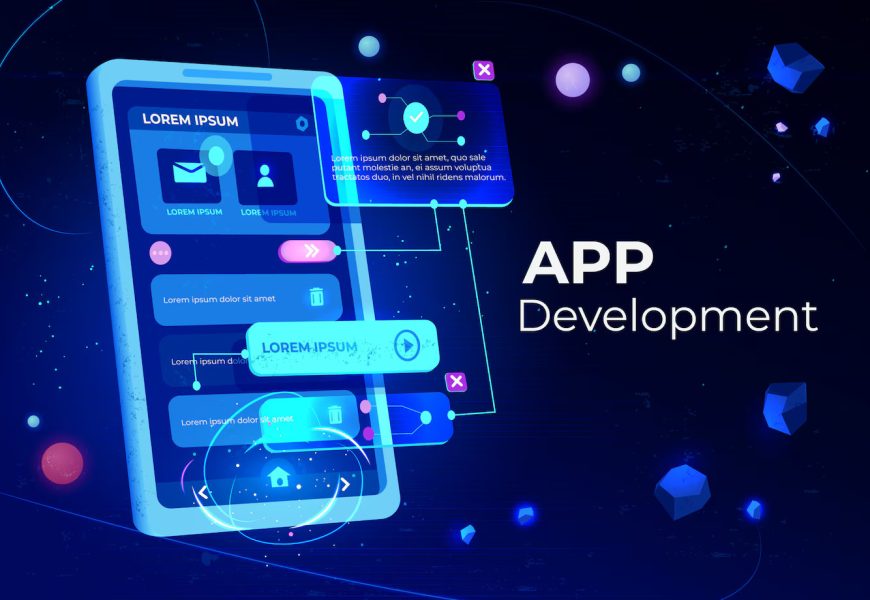1. Using OpenAI Technologies in App Development
OpenAI’s advancements in natural language processing (NLP) and machine learning can revolutionize mobile app development. From powering intelligent chatbots to creating sophisticated recommendation engines, integrating OpenAI APIs like GPT-4 or Codex allows developers to create smarter, more interactive apps. These technologies can provide personalized user experiences, automate customer service, and improve app efficiency by automating backend processes. AI-generated content and virtual assistants will also become more prevalent in mobile apps.
2. Personalization with Artificial Intelligence
AI-driven personalization is becoming critical for user retention. By analyzing user behavior, preferences, and interactions, AI can deliver personalized content, product suggestions, and notifications that enhance the user experience. With advanced machine learning algorithms, mobile apps can predict what users want even before they search for it, boosting engagement. Companies like Netflix and Spotify are already leveraging AI for content personalization, and this trend will continue to expand across industries.
3. Blockchain Technology
Blockchain is transforming mobile app development, especially in areas that require high security, transparency, and decentralized processes. It allows mobile apps to provide secure payment systems, protect user data, and enable peer-to-peer transactions without intermediaries. Blockchain’s decentralized nature makes it ideal for creating apps in industries like finance, healthcare, and supply chain, where data security and traceability are crucial.
4. IoT Applications for Connected Living
The Internet of Things (IoT) is reshaping how we interact with devices and appliances. With the integration of mobile apps, users can remotely control smart homes, wearables, cars, and other connected devices. This trend will accelerate as 5G networks make faster communication between devices possible. IoT applications in areas like health monitoring, energy management, and smart cities will lead to more convenience and efficiency for users.
5. Custom Enterprise Applications
Enterprise apps tailored to specific business needs are growing in demand. These custom apps help companies streamline operations, improve employee productivity, and facilitate better communication. Features like task management, CRM systems, and remote collaboration tools are increasingly embedded in mobile apps, allowing businesses to adapt quickly to changing market demands. With the rise of remote work, custom enterprise apps have become more crucial in helping businesses maintain workflow and efficiency.
6. Cashless with Mobile Wallets
The adoption of mobile wallets like Apple Pay, Google Pay, and Samsung Pay is making cashless transactions more accessible and secure. The convenience of mobile payments is driving the trend toward a cashless society, especially in developing economies. These apps leverage tokenization and biometric authentication, making payments faster and safer. Mobile wallets are also integrated into e-commerce apps and other services to allow seamless payments.
7. AR & VR for Immersive Experiences
Augmented Reality (AR) and Virtual Reality (VR) are changing how users experience mobile apps, offering immersive experiences that can be applied to gaming, shopping, education, and healthcare. AR-enabled apps allow users to interact with digital objects in the real world, while VR creates completely immersive environments. With devices like AR headsets becoming more accessible, developers are finding new ways to use these technologies to enhance user engagement and provide unique, interactive experiences.
These trends demonstrate how mobile apps will evolve, incorporating advanced technologies to enhance user experiences, security, and overall functionality. Embracing these trends will be crucial for businesses looking to stay ahead in the Competitive Mobile app development landscape.
8. Declarative Programming
Declarative programming is transforming the way mobile apps are developed by simplifying the coding process. Instead of writing extensive imperative code, developers now describe what they want the program to accomplish, and the system manages the execution. Frameworks like React Native, SwiftUI, and Jetpack Compose utilize declarative paradigms, improving app development speed and scalability. Declarative programming reduces the potential for bugs, enhances performance, and makes the code easier to maintain. It allows for the creation of dynamic and responsive user interfaces with less code, making app development more efficient.
9. Cross-platform App Development
Cross-platform development is gaining momentum as businesses strive to reach a wider audience with minimal resources. Instead of building separate native apps for iOS and Android, cross-platform frameworks like Flutter, React Native, and Xamarin allow developers to create a single codebase that works across multiple platforms. This trend not only saves time and money but also ensures a consistent user experience across devices. With cross-platform solutions improving in performance and feature compatibility, more companies are opting for this approach to expedite their app launches.
10. No Code/Low Code Development
The rise of no-code and low-code platforms is democratizing app development by allowing non-developers to build apps with minimal coding knowledge. Platforms like Bubble, OutSystems, and Adalo provide intuitive drag-and-drop interfaces that enable users to design and deploy functional mobile apps quickly. No-code/low-code tools are especially popular among startups and small businesses that need to develop apps quickly and affordably. As these platforms evolve, they are offering more complex functionalities, making it easier for companies to rapidly prototype, iterate, and launch apps without relying heavily on development teams.
11. Support with Chatbots
Chatbots are becoming an integral part of mobile apps, providing instant customer support and enhancing user experience. Powered by AI and NLP (Natural Language Processing), chatbots can handle routine tasks like answering FAQs, processing orders, and guiding users through complex processes. Integrating chatbots within mobile apps reduces the need for human intervention, allowing businesses to provide 24/7 support and personalized experiences at scale. As chatbot technology advances, they will become more intuitive, understanding user intent more accurately, and engaging in more natural conversations.
12. Wearable Technology
Wearables, such as smartwatches and fitness trackers, are reshaping the mobile app landscape. Mobile apps now integrate seamlessly with wearable devices, providing real-time data on health, fitness, and even location tracking. This trend is particularly significant in the health and fitness industry, where apps can monitor vital signs, track workouts, and provide personalized recommendations. As wearable technology advances, we will see more specialized apps designed to take advantage of these devices’ capabilities, offering users a more interconnected and convenient digital experience.
13. Beacon Technology
Beacon technology is revolutionizing location-based services by using Bluetooth Low Energy (BLE) to interact with nearby mobile devices. Businesses use beacons to send targeted notifications, promotions, and location-based content to app users. For instance, retail stores use beacons to send personalized offers to customers as they walk by certain sections of a store. This technology is not only enhancing customer engagement but also providing valuable insights into user behavior. As beacons become more widespread, their integration into mobile apps will open up new possibilities for hyper-local marketing and location-based services.
14. Instant Apps
Instant apps allow users to access app functionalities without needing to install the full app on their devices. Google introduced Android Instant Apps, which enable users to try an app or use its specific features directly from the browser or search results. This reduces the friction of downloading and installing apps, especially for users with limited storage or those who want to try out an app before committing to a full download. Instant apps streamline the user experience by eliminating the need for installation while offering all the essential features of the app, leading to higher user engagement.
These trends are reshaping mobile app development, offering faster, more efficient solutions while enhancing user experience. By embracing these innovations, businesses can stay competitive and deliver cutting-edge applications to their audiences.














